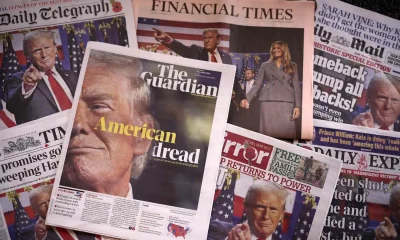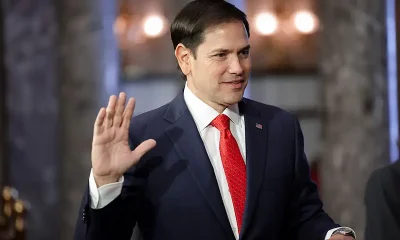Top stories
China to Pitch Green Tech Exports to African Leaders as Western Curbs Loom

China is set to make a major pitch for its green technologies at the upcoming Forum on China-Africa Cooperation (FOCAC) summit, starting this Wednesday in Beijing. With Western countries preparing to impose restrictions on Chinese exports like electric vehicles (EVs) and solar panels, China aims to leverage this summit to secure African markets for its burgeoning green tech industry. The summit, which will gather leaders from 50 African nations, presents Beijing with a critical opportunity to recalibrate its economic and trade relationships with the continent, emphasizing its advanced and environmentally friendly technologies.
The context of this summit is steeped in geopolitical and economic shifts. Western nations are tightening curbs on Chinese goods, including those pivotal to the green transition such as EVs and solar panels, citing concerns over overcapacity and trade imbalances. In response, China is redirecting its focus from large-scale infrastructure projects, which have historically been a hallmark of its engagement with Africa, to promoting its advanced technologies as a means to foster new trade relationships and secure market share.
China’s pivot away from funding grand infrastructure projects, like railways and ports, to emphasizing green technology and renewable energy is a strategic move driven by both necessity and opportunity. The Chinese government has already begun to adjust the terms of its loans to African countries, allocating more funds towards solar energy projects, EV manufacturing plants, and 5G technology, while scaling back on traditional infrastructure investments. This shift is indicative of China’s attempt to align with its domestic overcapacity issues and emerging global green standards.
During the summit, President Xi Jinping will likely champion China’s green technology sector, promoting it as a solution for Africa’s energy and transportation needs. The focus on green tech is not just a matter of economic strategy but also a geopolitical maneuver to strengthen China’s influence in Africa as competition from Western nations intensifies. Countries like Gambia, Kenya, Nigeria, South Africa, and Zimbabwe are expected to be key targets for these green technology pitches, given their significant mineral resources essential for manufacturing EVs and solar panels.
However, the path to success is fraught with challenges. African leaders, while open to the potential benefits of green technology, are likely to demand concrete action on several fronts. They will be scrutinizing China’s record on previous commitments, such as the unfulfilled pledge to purchase $300 billion worth of goods by 2021, and seeking assurances regarding the completion of ongoing infrastructure projects. The African nations are also navigating their own internal and external pressures, including debt restructuring issues and geopolitical tensions.
The geopolitical landscape in Africa is complex and increasingly competitive. The United States, Britain, Italy, Russia, and South Korea have all sought to increase their influence on the continent through their own summits and partnerships. China’s significant financial and trade role, however, gives its initiatives a weight that others struggle to match. Yet, this influence is not without its complications. Africa’s diverse and often volatile political environment can make it difficult for China to maintain stable and beneficial relationships across the continent.
Moreover, the current security concerns and unrest in various African countries, such as the deadly protests in Kenya and conflicts in Niger and Benin, pose risks to China’s investments and trade agreements. These security issues could affect the willingness of African countries to engage deeply with China, particularly if they perceive that Beijing is not sufficiently addressing the risks involved in its projects.
The forthcoming summit will be a litmus test for China’s strategy and its ability to adapt to the evolving demands and realities of its African partners. The effectiveness of China’s pitch for green technology will hinge on its capacity to address past shortcomings, offer tangible benefits to African nations, and navigate the complex geopolitical terrain of the continent.
As China faces mounting Western restrictions and an increasingly competitive global landscape, the success of its green tech pitch will be crucial in maintaining its influence and market presence in Africa. The summit will thus serve as a critical juncture for Beijing’s ambitions in the region, reflecting broader trends in global trade, technology, and geopolitical strategy.
Top stories
Musk’s Endorsement of Germany’s AfD Sparks Political Controversy

Elon Musk’s endorsement of Germany’s far-right Alternative for Germany (AfD) party has stirred political and public debate ahead of the country’s upcoming election. Musk’s declaration on X that “Only the AfD can save Germany” aligns him with a party known for its anti-EU stance, immigration crackdowns, and opposition to Ukraine aid.
While the AfD’s polling strength and populist rhetoric have already influenced public discourse, Musk’s support amplifies their visibility and emboldens their platform. This comes at a time when economic pressures and debates over Germany’s role in Ukraine are fracturing political unity.
Domestically, mainstream German parties continue to reject alliances with the AfD, but the party’s growing influence may shift how major issues like EU membership and military aid are debated. Internationally, Musk’s intervention echoes broader concerns about waning Western unity on Ukraine, particularly with Donald Trump set to assume the U.S. presidency, potentially reshaping transatlantic policies.
Musk’s actions highlight the growing role of influential figures in shaping political narratives, underscoring the delicate balance Germany must strike between addressing domestic concerns and maintaining its leadership role in Europe.
Top stories
U.S. Sanctions on Pakistan’s Missile Program Deepen Regional Divisions

The recent U.S. sanctions targeting Pakistan’s ballistic missile development program have added strain to an already volatile South Asian security landscape. Announced by the U.S. State Department under an executive order addressing weapons proliferation, the measures include restrictions on Pakistan’s state-owned National Defense Complex and three associated entities.
Pakistan’s government has condemned the sanctions as biased and destabilizing, accusing the U.S. of employing “double standards” that exacerbate military imbalances with neighboring India. The foreign ministry characterized the move as undermining strategic stability in South Asia and reaffirmed that Pakistan’s defense initiatives are focused on safeguarding sovereignty and regional peace.
The sanctions freeze any U.S.-based assets held by the targeted firms and prohibit American citizens from engaging in transactions with them. This includes penalties aimed at curbing the development of Pakistan’s Shaheen missile series, a nuclear-capable system with a range of approximately 2,750 kilometers.
Pakistan’s missile program has long been a cornerstone of its national defense strategy, particularly as a counterbalance to India’s conventional and strategic military superiority. However, Islamabad argues that U.S. policies favor India, which has developed its own extensive missile capabilities without facing similar scrutiny or restrictions.
These measures come at a time of heightened geopolitical tension. Both India and Pakistan, nuclear-armed rivals that conducted their first tests in 1998, continue to refuse to sign the Non-Proliferation Treaty. The strained relationship between the two countries frequently raises fears of escalation, particularly as military skirmishes remain a regular occurrence along their shared border.
The sanctions could push Pakistan further toward alternative partnerships, particularly with China, which has steadily increased its economic and defense ties with Islamabad. This pivot risks undermining U.S. influence in South Asia at a time when Washington faces growing competition from Beijing for regional dominance.
For the U.S., the sanctions underscore its commitment to nonproliferation but also risk alienating a long-standing partner. Pakistan remains a critical actor in the region’s stability and a key player in counterterrorism and security operations. If perceived as overly punitive, these measures could deepen divisions in an already fragile regional balance and complicate efforts to foster strategic stability in South Asia.
Top stories
Scandal: African Women Trapped in Russian Drone Factories for Ukraine War

Reports reveal young African workers lured under false pretenses to Russian factories producing drones for Ukraine’s battlefield, exposing deep ethical and geopolitical concerns.
Allegations of exploitation by Russia’s Alabuga Special Economic Zone, targeting young African women for drone production under false pretenses, reveal a troubling intersection of labor abuse and global conflict. These women, promised opportunities for education and work, instead found themselves assembling military drones used in Russia’s war in Ukraine.
The program, dubbed Alabuga Start, capitalizes on the high unemployment rates across Africa, luring recruits from countries like Uganda, Kenya, Nigeria, and South Sudan. Recent investigations, including by The Associated Press, The Washington Post, and the Institute for Science and International Security, have exposed the deceitful recruitment practices, with participants coerced into hazardous work conditions that directly contribute to military operations.
Promotional materials for Alabuga Start depict an idyllic life in Russia, showcasing roles in hospitality, construction, and non-military industries. In reality, over 90% of participants are funneled into drone assembly lines, often handling toxic materials—a violation of Russian labor laws. This contrasts starkly with the opportunities promised during recruitment, leaving young African women vulnerable to exploitation and even physical harm.
Reports indicate that recruiters deliberately targeted women under the assumption that men might be “too aggressive,” revealing a deeply discriminatory and exploitative mindset. Internal documents obtained by investigators showed organizers referring to participants using racially offensive terms, further highlighting the degrading treatment these workers face.
Participants not only endure grueling 12-hour shifts but also find themselves caught in the literal crossfire of war. In one incident, a Ukrainian drone struck a dormitory housing Alabuga Start workers, placing them in direct danger.
The factory producing these drones is central to Russia’s military strategy in Ukraine, particularly in collaboration with Iran. The Shahed-136, an Iranian-designed kamikaze drone, has been a critical weapon in Russia’s campaign against Ukrainian civilian and energy infrastructure. Alabuga’s role in assembling these drones illustrates its pivot from civilian industry to military production—a shift driven by economic desperation after international companies exited following Russia’s invasion of Ukraine.
This exploitation extends beyond labor abuses; it implicates participants in activities that contravene international law. Unknowingly contributing to the production of drones used in an illegal war, these workers are placed in morally and legally precarious positions.
A glaring aspect of this scandal is the inaction—or even complicity—of several African governments. Countries like Uganda, Nigeria, and Kenya have promoted Alabuga Start through official channels, facilitating the recruitment of their citizens into these exploitative conditions.
Documents uncovered by VOA reveal that ministries in nations such as Uganda and Sierra Leone advertised the program, despite mounting evidence of its true nature. Meetings between Alabuga representatives and African officials have resulted in signed agreements, deepening ties and perpetuating the cycle of exploitation.
David Albright, who authored a report on the issue, urged African governments to demand accountability and transparency. However, as of now, responses from these governments remain largely absent, leaving vulnerable populations unprotected.
The revelations about Alabuga Start underscore a broader issue of how economically vulnerable populations are exploited in geopolitical conflicts. The use of deceptive recruitment practices to involve young Africans in war-related industries exposes systemic failures in governance, labor oversight, and international accountability.
Moreover, the scandal raises ethical concerns for governments and organizations maintaining ties with Russia. It demonstrates how economic desperation and misinformation are weaponized to sustain military operations, posing profound moral questions for policymakers worldwide.
The Alabuga Start scandal shines a spotlight on the intersection of labor exploitation, economic vulnerability, and global conflict. For African nations, it is a wake-up call to protect their citizens from deceptive programs and demand accountability from international partners.
For the international community, the revelations demand greater scrutiny of how economic and geopolitical pressures drive human rights abuses. As the war in Ukraine continues to devastate lives, the exploitation of young African workers for military drone production is a stark reminder of the global ripple effects of unchecked authoritarianism.
Top stories
Global Coal Demand Breaks Record in 2024, IEA Warns of Delayed Peak
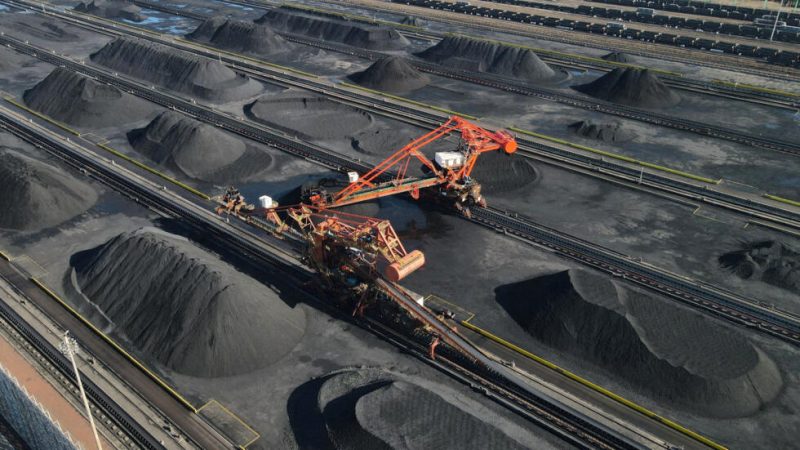
Despite urgent calls to reduce emissions, rising coal consumption in China, India, and Indonesia underscores the challenge of transitioning to cleaner energy.
The International Energy Agency (IEA) has revealed that global coal consumption will reach a record 8.9 billion tonnes in 2024, marking the third consecutive year of record demand. This surge is largely driven by growing energy needs in China, India, and Indonesia, offsetting declining coal usage in the United States and the European Union. The IEA’s Coal 2024 report also revised its projection for coal’s global peak to 2027, three years later than previously anticipated.
China, the world’s largest coal consumer, is at the forefront of this trend. In 2024, the country is expected to burn 4.9 billion tonnes of coal, a historic high. While China has heavily invested in renewable energy, coal remains a cornerstone of its power generation, supporting both industrial output and residential energy demands. This reliance underscores the challenges of rapidly transitioning away from fossil fuels in a nation with vast and complex energy requirements.
Emerging economies such as India and Indonesia are also driving the demand. In these nations, coal is a cost-effective and reliable energy source for rapidly growing populations and industrial sectors. Their reliance on coal, coupled with limited access to scalable renewable energy alternatives, presents a significant obstacle to global decarbonization efforts.
In contrast, advanced economies like the U.S. and EU have significantly reduced their coal usage due to stringent climate policies and growing renewable energy adoption. However, global climate progress remains fragile. The possible return of Donald Trump to the U.S. presidency in 2025 raises concerns about the potential rollback of climate commitments, given his previous dismissal of climate change as a “hoax.”
This record-breaking coal consumption comes against the backdrop of a planet under duress. The EU’s Copernicus Climate Change Service has declared 2024 as potentially the hottest year on record, further emphasizing the urgent need for coordinated global action. Scientists continue to stress the critical importance of reducing greenhouse gas emissions to mitigate the worst impacts of climate change.
Efforts to transition away from coal remain sluggish. The recent COP29 summit in Azerbaijan failed to deliver stronger global commitments to phase out fossil fuels, highlighting the difficulty of aligning international policies with the urgent climate agenda. Meanwhile, geopolitical shifts, including rising coal imports by countries like Turkey, further complicate the path to decarbonization.
Despite the grim outlook, the IEA pointed to opportunities for plateauing coal demand post-2027. This projection hinges on continued investments in renewables, improvements in energy efficiency, and equitable financial and technological support to developing nations. Scaling solutions like battery storage, grid infrastructure, and carbon capture will be essential in meeting global energy demands sustainably.
The growing divergence between advanced economies reducing coal dependency and emerging markets increasing reliance underscores the need for equitable climate solutions. Wealthier nations must offer financial and technological assistance to ensure that emerging economies can transition away from coal without stifling their development.
As the world edges closer to the critical 1.5°C global warming threshold, the record demand for coal in 2024 serves as a stark reminder of the challenges ahead. Global collaboration, coupled with sustained investment in clean energy, remains the only viable path to bridging the gap between climate ambitions and reality.
Top stories
Somaliland’s Stability vs. Somalia’s Misplaced Priorities
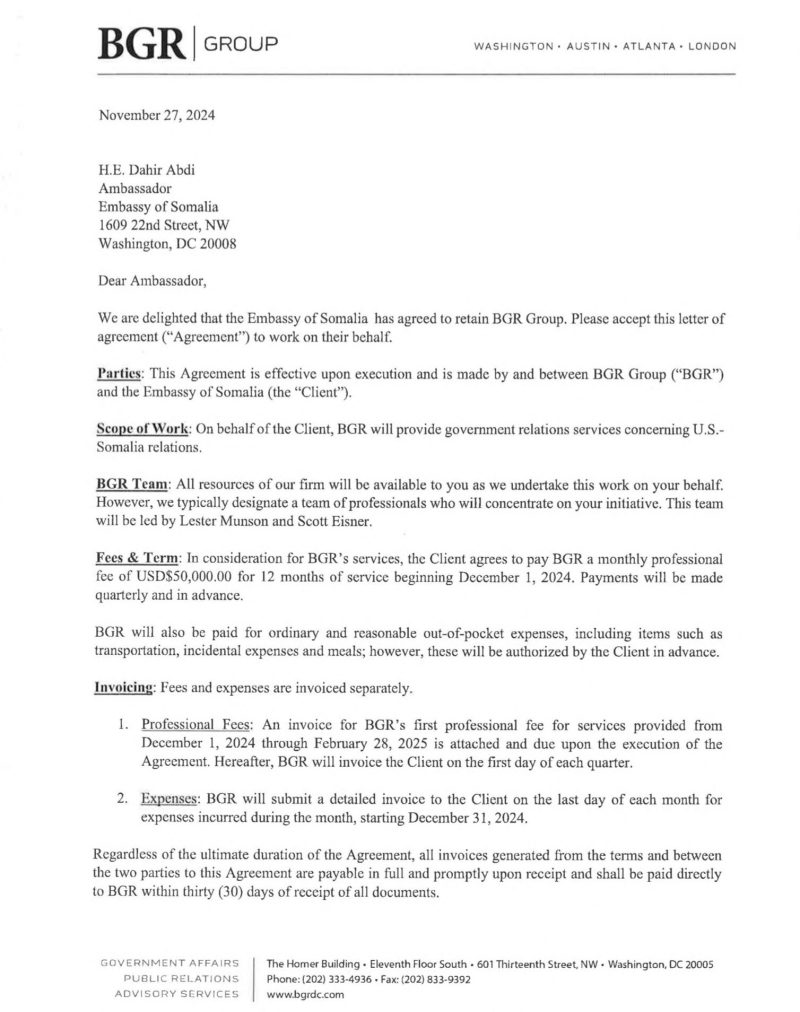
The recent decision by the Mogadishu administration to engage the lobbying firm BGR Group at a staggering cost of $50,000 per month epitomizes the ongoing dysfunction of Somalia’s governance. This expenditure, reportedly aimed at countering Somaliland’s legitimate and internationally supported bid for recognition, reflects a fundamental misallocation of resources and priorities by a government grappling with systemic failures.
Somalia remains a fragile state, plagued by recurring humanitarian crises, endemic corruption, and security challenges exacerbated by extremist threats like al-Shabaab. The Mogadishu administration’s decision to divert critical resources toward lobbying efforts in Washington, rather than addressing these urgent domestic issues, is emblematic of a government disconnected from the needs of its people. Foreign aid, intended to alleviate Somalia’s humanitarian suffering and bolster state-building, is instead being funneled into campaigns that serve narrow political interests.
This move starkly contrasts with Somaliland’s steady progress toward democracy, stability, and self-reliance. Congressman Scott Perry’s introduction of a bill supporting Somaliland’s pursuit of independence highlights the growing international recognition of Somaliland’s accomplishments. Unlike Mogadishu, Hargeisa has demonstrated effective governance, holding free and fair elections, maintaining internal security, and fostering economic growth through initiatives like the development of Berbera Port. These achievements are a testament to Somaliland’s resilience and commitment to democratic values, earning it respect on the global stage.
The Mogadishu administration’s fixation on undermining Somaliland not only distracts from its own failures but also further delegitimizes its position. While Somalia’s leaders pour resources into lobbying against Somaliland, their citizens face famine, displacement, and the constant threat of violence. The mismanagement of foreign aid, a critical lifeline for millions of Somalis, exacerbates public mistrust and deepens the state’s instability.
Furthermore, Mogadishu’s opposition to Somaliland’s independence ignores the realities on the ground. Somaliland has operated as a de facto independent state for over three decades, achieving stability and governance outcomes far superior to Somalia’s. Rather than acknowledging these achievements, Somalia continues to cling to outdated narratives that neither reflect the aspirations of Somalilanders nor address the failures of its own governance.
The contrast between Somaliland and Somalia is striking. Where Somaliland has cultivated democratic governance, Somalia remains mired in corruption and factionalism. Where Somaliland invests in infrastructure and public services, Somalia misuses foreign aid on futile lobbying campaigns. These disparities make a compelling case for the international community to reevaluate its engagement with both entities. Somaliland’s successes deserve recognition and support, while Somalia’s continued mismanagement calls for greater accountability and oversight of foreign aid.
Ultimately, the Mogadishu administration’s lobbying efforts reveal a government more interested in sabotaging Somaliland than in addressing the dire needs of its own people. This misplaced focus underscores why Somaliland’s bid for recognition is gaining traction: it offers a stark alternative to the chronic dysfunction that has come to define Somalia. The international community should not only question the priorities of Mogadishu’s leaders but also amplify support for Somaliland’s rightful pursuit of recognition as a sovereign, stable, and democratic state.
Top stories
Minneapolis Mosque Threatened by Extremists, Police Boost Security

The recent threats against the Abubakar As-Sadique Islamic Center in Minneapolis underscore the ongoing vulnerabilities faced by Muslim institutions in the United States. The mosque, a vital hub for the Somali community in South Minneapolis, was targeted by extremist groups through social media, prompting law enforcement to take immediate action to ensure its security. These incidents highlight both the resilience of the local Muslim community and the persistent risks of targeted hostility faced by minority groups.
The mosque’s leadership, supported by the Somali community, has shown remarkable composure and solidarity in the face of these threats. While temporary suspensions of educational activities like Quran classes were a necessary precaution, the swift resumption of these programs reflects the community’s determination to maintain normalcy despite challenges. Mosque manager Mohamed Hambaase emphasized the importance of police intervention, which included taking over security at the mosque and increasing surveillance in the surrounding area. This proactive response by law enforcement is critical in restoring a sense of safety and addressing the immediate concerns of the community.
These threats are part of a broader pattern of hostility directed at Muslim institutions across the country. Similar incidents have highlighted the dangers posed by extremist ideologies, often fueled by hateful rhetoric and misinformation. The 2016 foiled plot in Kansas serves as a grim reminder of the catastrophic potential of unchecked extremism. The parallels between that case and the current threats against the Minneapolis mosque underline the urgent need for vigilance, community cooperation, and robust law enforcement measures to preempt such risks.
The Abubakar As-Sadique Islamic Center is not merely a place of worship but a cultural and educational cornerstone for the Somali community in Minnesota. Hosting events like Quran competitions and Eid celebrations, the mosque serves as a unifying force for the community. Targeting such institutions represents an attack not only on religious freedom but also on the cultural identity and cohesion of the Somali diaspora in the United States.
Local and national leaders have stressed the importance of fostering unity and addressing the root causes of such threats. This includes combating the spread of extremist ideologies online, holding platforms accountable, and ensuring public discourse does not perpetuate division. Community-led awareness campaigns in Minneapolis exemplify how grassroots efforts can complement law enforcement in mitigating risks and promoting inclusivity.
As investigations into the current threats continue, the broader narrative reflects the resilience of Muslim communities in America amid rising challenges. The swift and visible response by law enforcement in Minneapolis sets a positive example of how authorities can effectively address such incidents. However, sustainable solutions require systemic efforts to counter hate and protect vulnerable communities, ensuring that places of worship and cultural significance remain safe spaces for all.
Top stories
President Biden Assures Public: ‘Nothing Nefarious’ About Recent Drone Activity

President Joe Biden’s reassurance about recent drone sightings along the East Coast reflects an effort to manage public concern amidst heightened scrutiny and speculation. By stating there is “nothing nefarious” about the increased reports, Biden sought to calm fears while acknowledging the attention the matter has drawn from various quarters, including politicians, lawmakers, and conspiracy theorists. His remarks echo a broader response from federal agencies, which have stressed that the sightings are neither unusual nor indicative of a security threat.
Drone activity has risen significantly in recent years due to advancements in technology and widespread availability. The Federal Aviation Administration reports over a million registered drones, used for purposes ranging from hobbyist recreation to commercial applications and law enforcement. However, the visibility and ubiquity of these unmanned aircraft have raised concerns about privacy, security, and airspace management. The sightings, numbering over 5,000 tips in recent weeks, highlight how rapidly drones have become embedded in both civilian and operational contexts.
Behind the reassurances, the federal government is grappling with how to regulate and manage this proliferation. Agencies like the Department of Homeland Security and the Defense Department are working to develop frameworks for identifying and mitigating potential drone-related threats while balancing innovation and safety. The provision in the newly proposed funding bill to reauthorize DHS-led counter-drone programs underscores the urgency of updating legal and technological tools to address emerging challenges.
Despite the official assurances, public anxiety over drones is fueled by the lack of transparency and fragmented regulations governing their use. High-profile figures, including President-elect Donald Trump and New York Governor Kathy Hochul, have joined calls for more information, illustrating bipartisan concern. Such demands reflect both a desire for greater accountability and recognition of the risks posed by unmanned aircraft, particularly as they gain capabilities like longer range, higher payloads, and enhanced surveillance functions.
Contributing to public skepticism are conspiracy theories that thrive in the absence of detailed explanations. While officials, including National Security Council spokesperson John Kirby and intelligence briefings to lawmakers, have reiterated that these drones do not appear to be associated with malign actors or unlawful purposes, the public’s unease is unlikely to dissipate without more visible regulatory action.
The drone sightings also raise broader questions about U.S. airspace security, technological proliferation, and privacy rights. While Biden and federal agencies have downplayed the current risks, the growing prevalence of drones underscores the need for robust systems to monitor and manage their use. The issue highlights a gap in legislation and enforcement, prompting calls for Congress to pass measures granting federal, state, and local entities clearer authority to address drone-related concerns.
For now, Biden’s assurances and the administration’s coordinated response aim to strike a balance between diffusing public fears and advancing policy reforms to address a rapidly evolving technological landscape.
Top stories
MI5 Wins Case Against Lawyer Tied to Alleged Chinese Political Influence in Britain
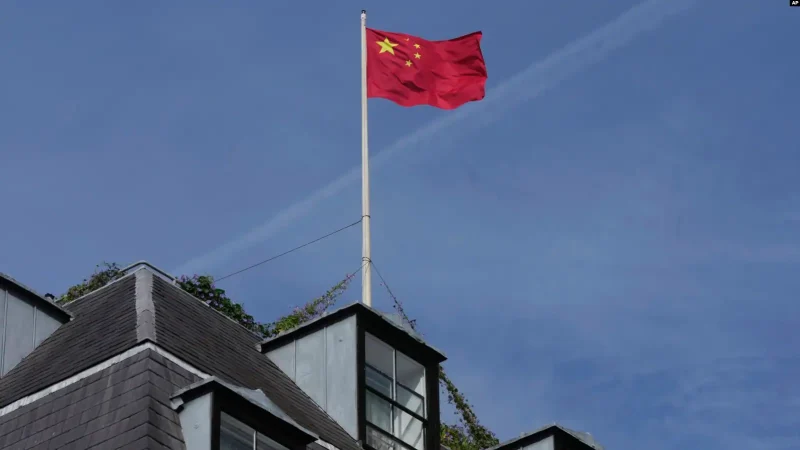
The dismissal of lawyer Christine Lee’s legal case against MI5 underscores the intensifying scrutiny over alleged Chinese interference in British politics and highlights the broader tensions between the United Kingdom and China. The case, rooted in a 2022 security alert issued by MI5, accused Lee of coordinating with the Chinese Communist Party’s United Front Work Department to influence U.K. political processes. While Lee’s challenge was based on claims that the alert was political and violated her human rights, the Investigatory Powers Tribunal firmly upheld MI5’s actions as “legitimate,” signaling strong institutional backing for the agency’s findings.
The allegations against Christine Lee reveal how China’s United Front Work Department operates as a soft power arm to exert influence globally, often blurring the lines between legitimate networking and covert political maneuvering. Lee’s financial contributions, amounting to roughly £500,000, primarily to Labour lawmaker Barry Gardiner, and her son’s employment as a diary manager, illustrate the subtle nature of influence-building tactics. While Lee was not accused of any criminal activity, the case raises significant questions about the transparency and vulnerabilities of the U.K.’s political funding systems, especially concerning foreign involvement.
The decision comes at a time when Britain has adopted a more confrontational stance toward suspected Chinese interference, illustrated by the recent allegations against Chinese national Yang Tengbo. Yang, accused of cultivating ties with Prince Andrew and operating covertly on behalf of China, reportedly engaged in activities that authorities described as deceptive and aimed at embedding influence among the British establishment. MI5’s findings surrounding Yang suggest a more deliberate and targeted effort by China to establish connections at high levels of British society, a strategy that has long been a concern for Western intelligence agencies.
China’s strong denials, including the Foreign Ministry’s dismissal of the allegations as “ridiculous,” and its calls for the U.K. to cease “anti-China political manipulations,” reflect Beijing’s sensitivity to these accusations. The Chinese Embassy’s condemnation of what it describes as “smearing” China further highlights the geopolitical friction that accompanies such incidents. For China, these cases contribute to a narrative of Western nations escalating anti-China rhetoric, while for Britain, they underscore the urgency of protecting political institutions and national security from covert foreign influence.
The tribunal’s decision and the Yang case collectively signal a tightening of measures against foreign interference in the U.K., particularly amid heightened concerns over China’s growing global influence. For the British political system, the focus will likely shift toward increased vigilance in monitoring foreign donations, strengthening transparency laws, and safeguarding sensitive networks from external manipulation. The fallout from these incidents also sets the stage for further diplomatic tensions between the U.K. and China, as London takes a firmer stance on national security concerns linked to Beijing.
-

 WARYATV Analysis6 months ago
WARYATV Analysis6 months agoSomaliland: A Goldmine of Renewable Energy and Rare Earth Minerals Poised to Transform the Region
-
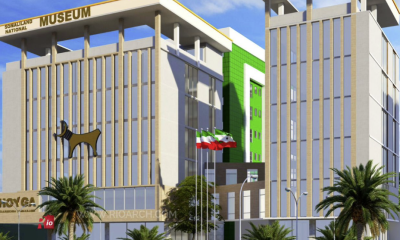
 EDITORIAL6 months ago
EDITORIAL6 months agoThe Legacy of President Muse Bihi: Crafting the Future of Somaliland’s History and Education
-

 Election 20246 months ago
Election 20246 months agoBritain’s Labour Party sweeps to power in historic election win
-

 Editor's Pick6 months ago
Editor's Pick6 months agoPM Abiy Ahmed Visits Port Sudan Amid Ongoing Conflict
-

 Top stories5 months ago
Top stories5 months agoWhen envy strikes, try these six things for better mental health
-

 Editor's Pick5 months ago
Editor's Pick5 months agoWhat Washington Thinks of Keir Starmer
-

 Editor's Pick5 months ago
Editor's Pick5 months agoAmerican Journalist Evan Gershkovich Sentenced to 16 Years in Russian Prison in Espionage Case
-

 Top stories5 months ago
Top stories5 months agoParis Braces for Olympics with Massive Troop Deployment











